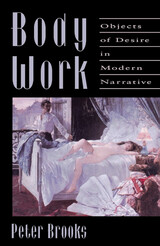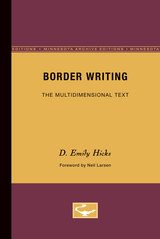4 start with B start with B

The Big Question leads off with a major essay explaining and exploring the concept of postmodernism. The next sections include pieces about poetry and fiction, lives and letters, and criticism and controversy.
Other "big questions" addressed include political correctness, the genre of literary biography, academic life and deconstruction. There is a humorous piece on poetry "slams" and the whole "downtown" poetry scene, a feisty op-ed column (on the deconstruction of the Gettysburg Address), a pair of wickedly satirical poems, as well as a group of exceptional book reviews.
The subjects covered range from Philip Larkin to Philip Roth- from the greatest poetry hoax of the twentieth century (which took place in Australia during World War II) to Charles Dickens's unfinished last novel- and from nineteenthth-century American poetry to the political career of Martin Heidegger.
David Lehman is a poet and author of Signs of the Times: Deconstruction and the Fall of Paul de Man. He is series editor of the celebrated Best American Poetry anthology.

The desire to know the body is a powerful dynamic of storytelling in all its forms. Peter Brooks argues that modern narrative is intent on uncovering the body in order to expose a truth that must be written in the flesh. In a book that ranges widely through literature and painting, Brooks shows how the imagination strives to bring the body into language and to write stories on the body.
From Rousseau, Balzac, Mary Shelley, and Flaubert, to George Eliot, Zola, Henry James, and Marguerite Duras, from Manet and Gauguin to Mapplethorpe, writers and artists have returned in fascination to the body, the inescapable other of the spirit. Brooks's deep understanding of psychoanalysis informs his demonstration of how the "epistemophilic urge"--the desire to know-guides fictional plots and our reading of them.
It is the sexual body that furnishes the building blocks of symbolization, eventually of language itself-which then takes us away from the body. Yet mind and language need to recover the body, as an other realm that is primary to their very definition. Brooks shows how and why the female body has become the field upon which the aspirations, anxieties, and contradictions of a whole society are played out. And he suggests how writers and artists have found in the woman's body the dynamic principle of their storytelling, its motor force.
This major book entertains and teaches: Brooks presumes no special knowledge on the part of his readers. His account proceeds chronologically from Rousseau in the eighteenth century forward to contemporary artists and writers. Body Work gives us a set of analytical tools and ideas-primarily from psychoanalysis, narrative and film studies, and feminist theory-that enable us to read modern narrative afresh.

Border Writing was first published in 1991. Minnesota Archive Editions uses digital technology to make long-unavailable books once again accessible, and are published unaltered from the original University of Minnesota Press editions.
Until recently, literary theory has been grounded in the histories of English, French, German, and Spanish literature. The terms and models for the production of literature and its function in culture and society were decided in Western Europe, and any deviations were immediately marginalized. This Eurocentric view has been widely attached by postmodern, feminist, and postcolonial political practices.
Drawing on a variety of critical and theoretical sources, D. Emily Hicks employs the concept of border writing to consider the complexities of contemporary Latin American writing. With its emphasis on the multiplicity of languages and the problems of translation, border writing connotes a perspective that is no longer determined by neat distinctions. Hicks combines Deleuze and Guattari's notion of "deterritorialization" (the geographic, linguistic, or cultural displacement from one's own country, language, or native culture) with a holographic metaphor in provocative readings of Latin America writers, including Gabriel Garcia Marquez, Luisa Valenzuela, and Julio Cortazar. The result is a volume that forces the reader to consider the development of literature in terms of strategies and tactics that contribute to the production of meaning in culturally complex and politically repressive societies.
D. Emily Hicks is associate professor of English and comparative literature and a member of the Latin American studies faculty at San Diego State University. Neil Larsen is associate professor of Spanish and Latin American literature at Northeastern University and the author of Modernism and Hegemony: A Materialist Critique of Aesthetic Agencies (Minnesota, 1990).

READERS
Browse our collection.
PUBLISHERS
See BiblioVault's publisher services.
STUDENT SERVICES
Files for college accessibility offices.
UChicago Accessibility Resources
home | accessibility | search | about | contact us
BiblioVault ® 2001 - 2024
The University of Chicago Press









